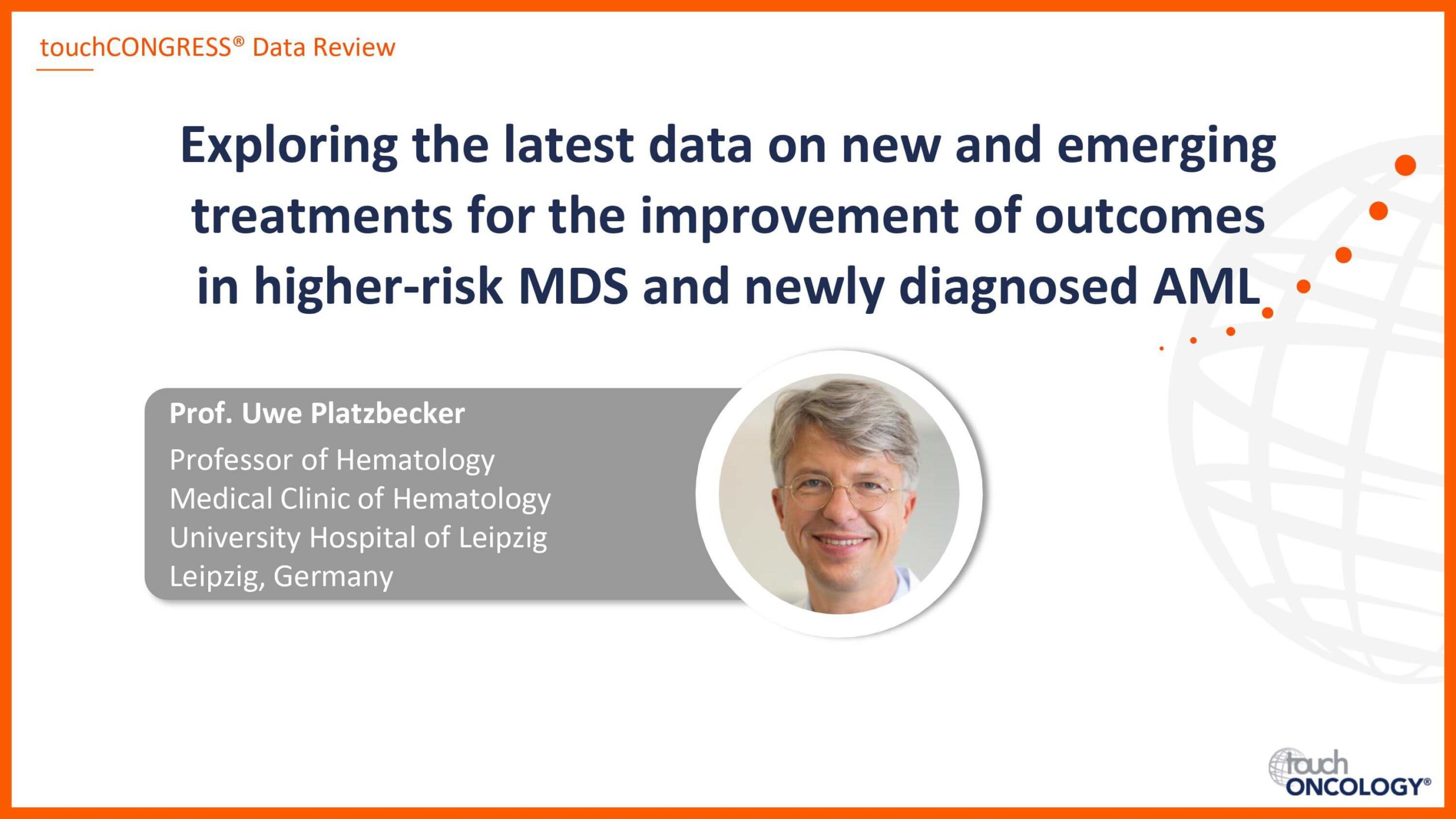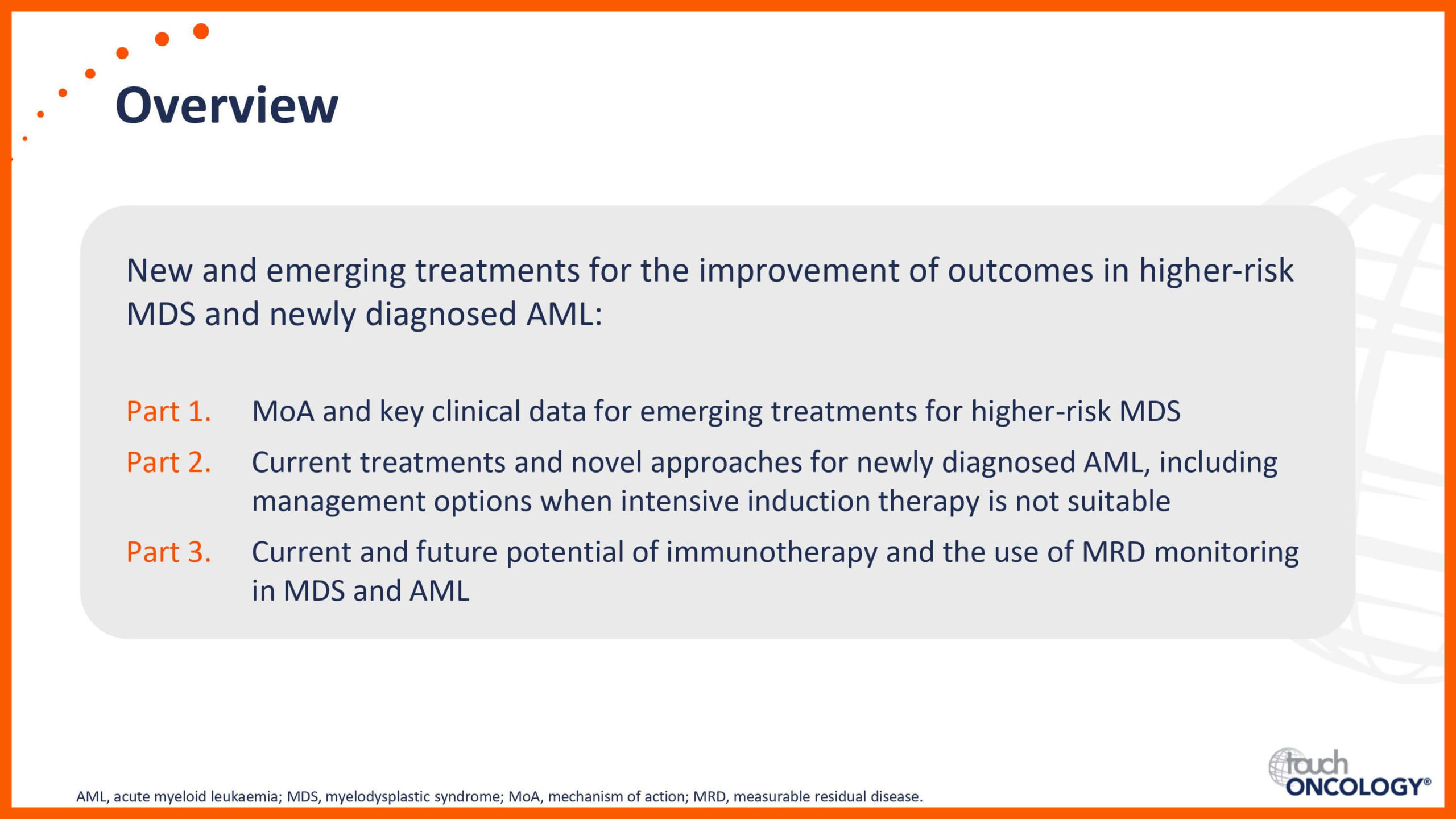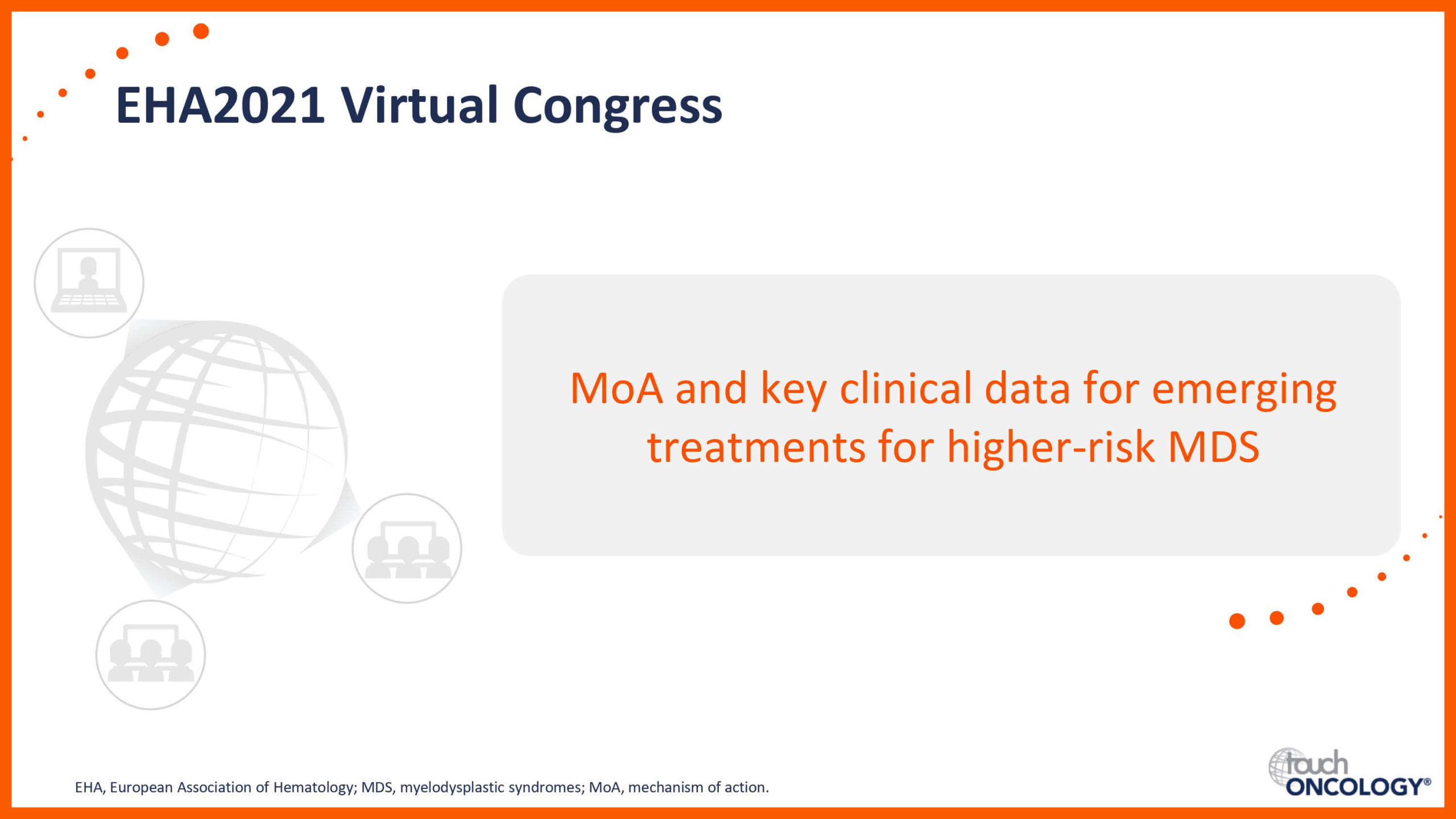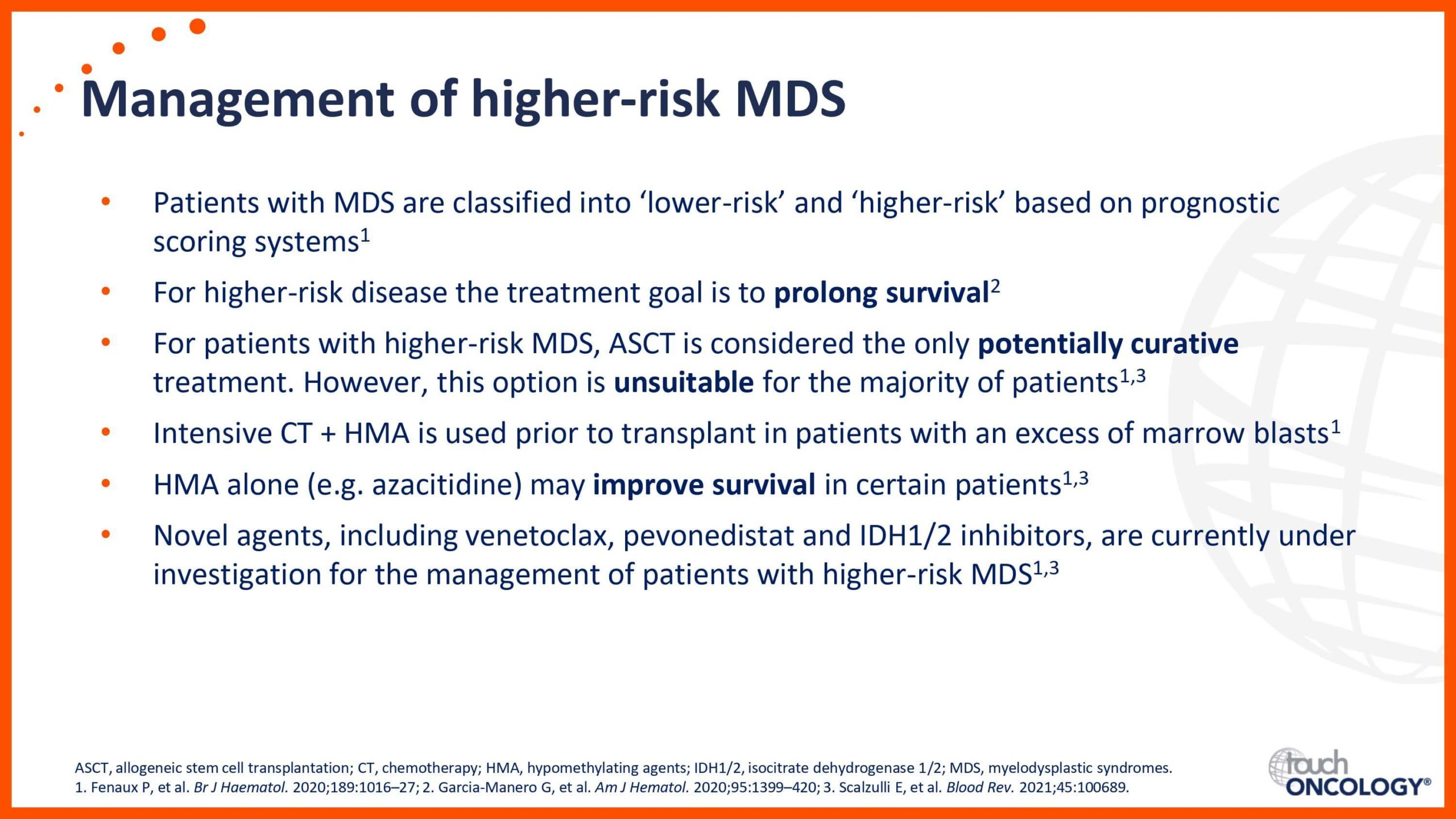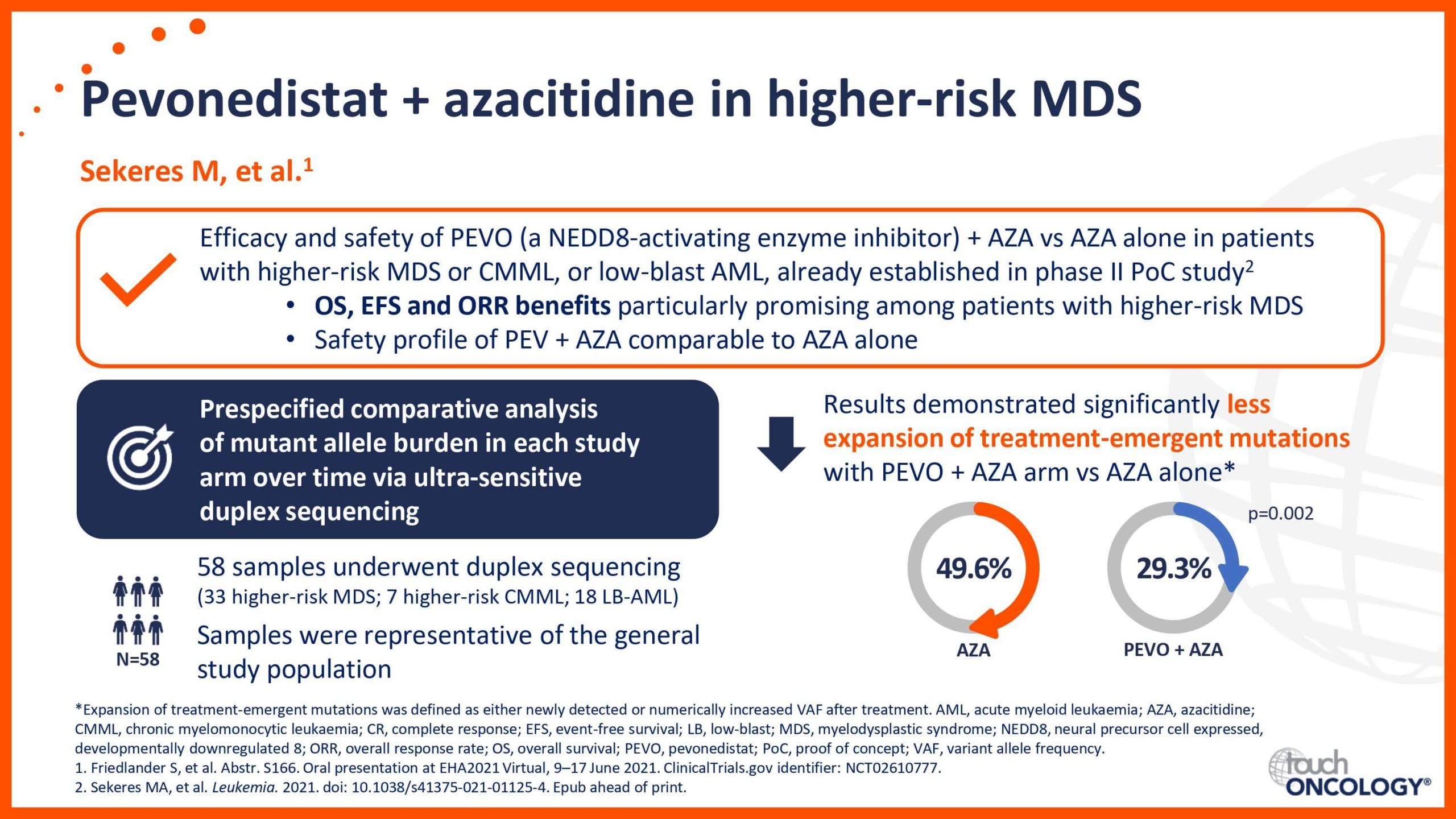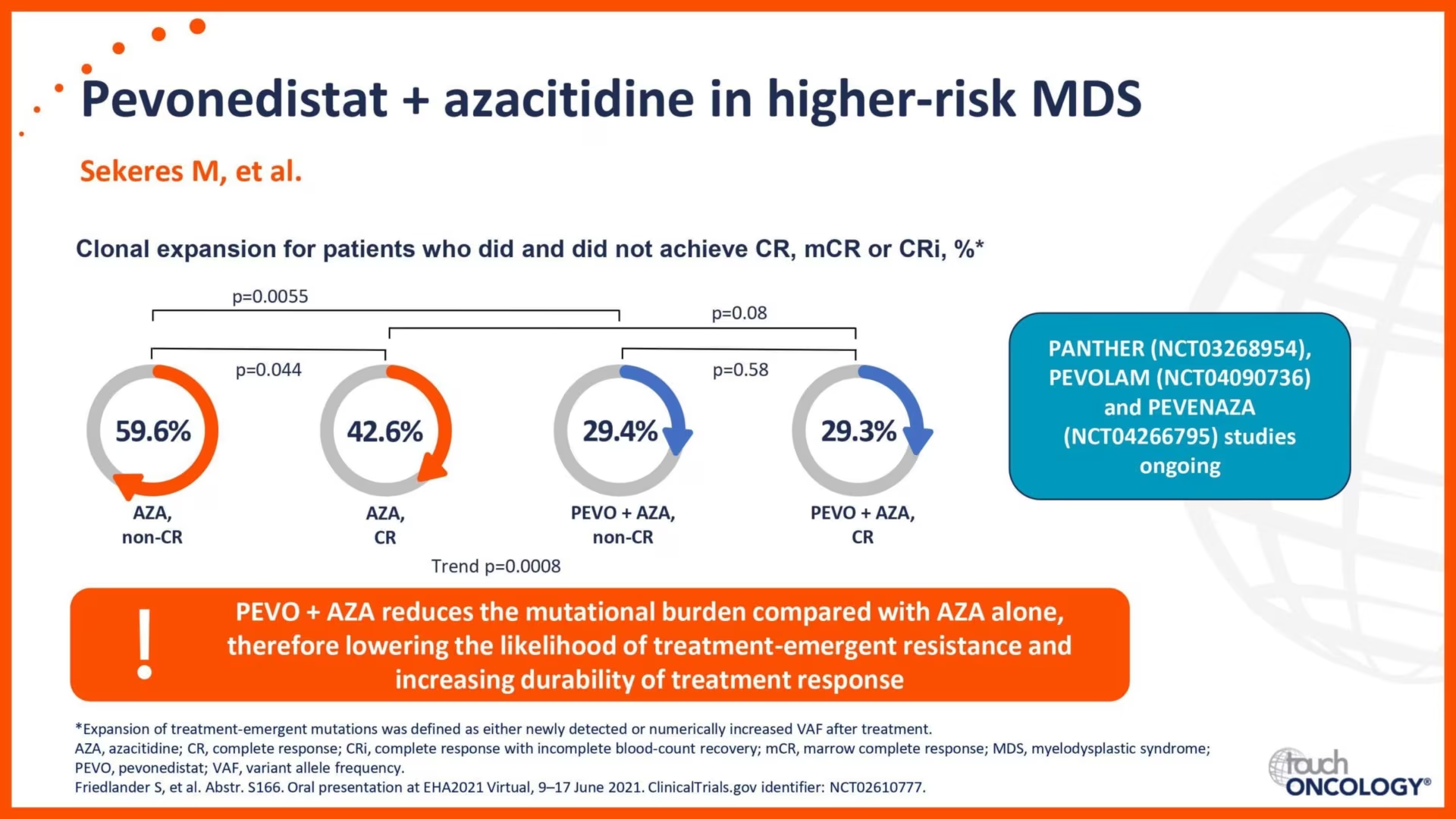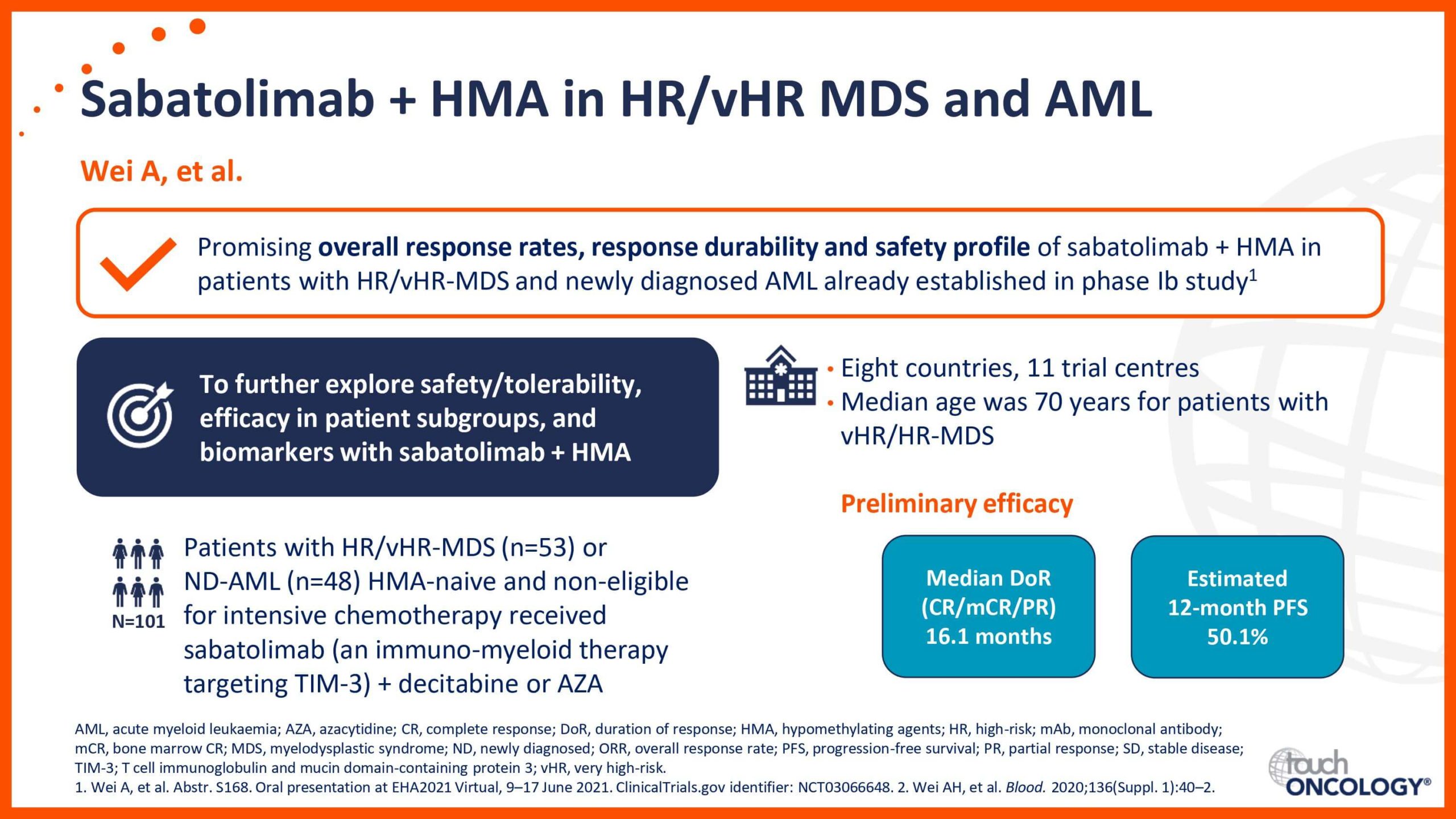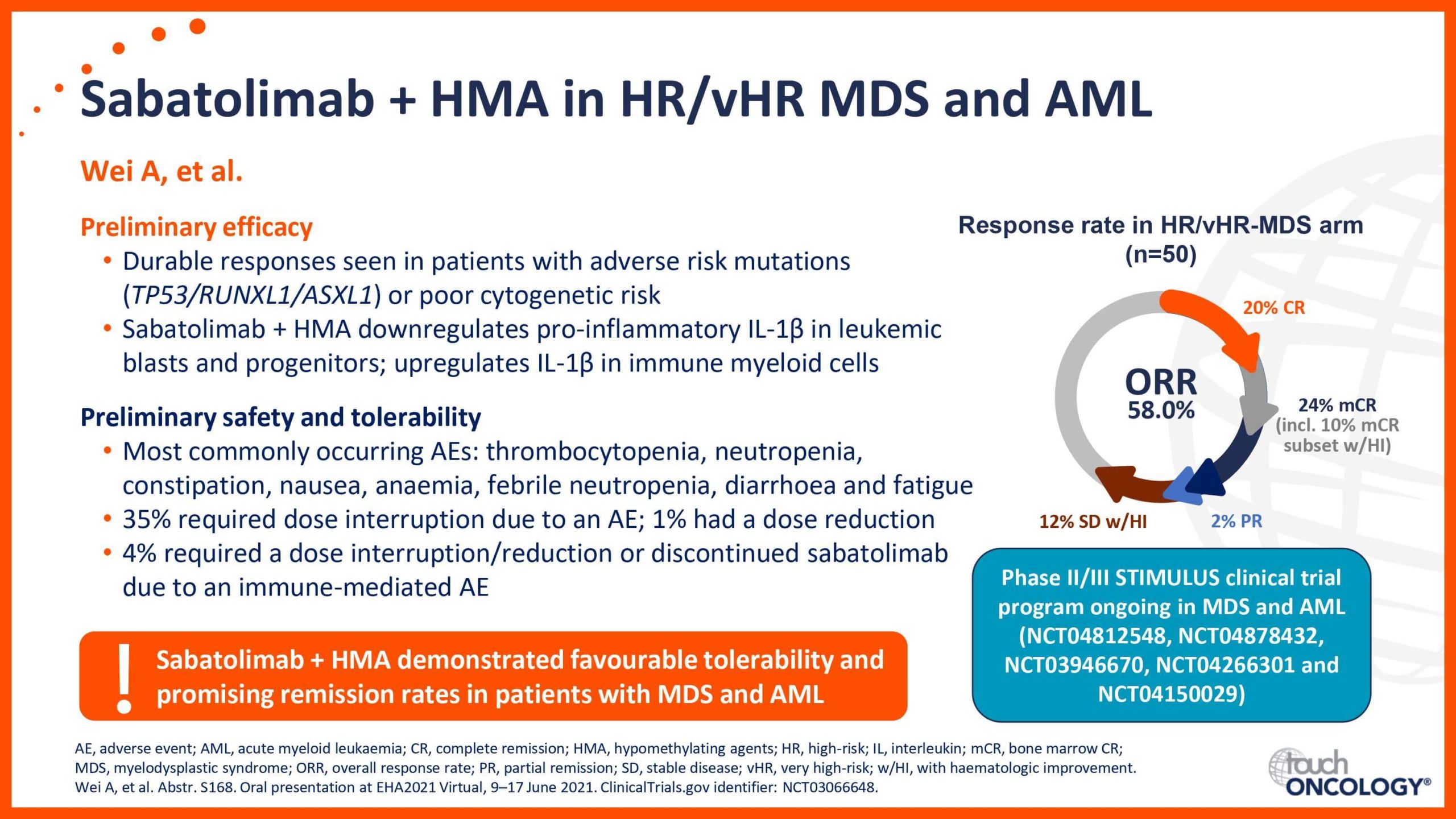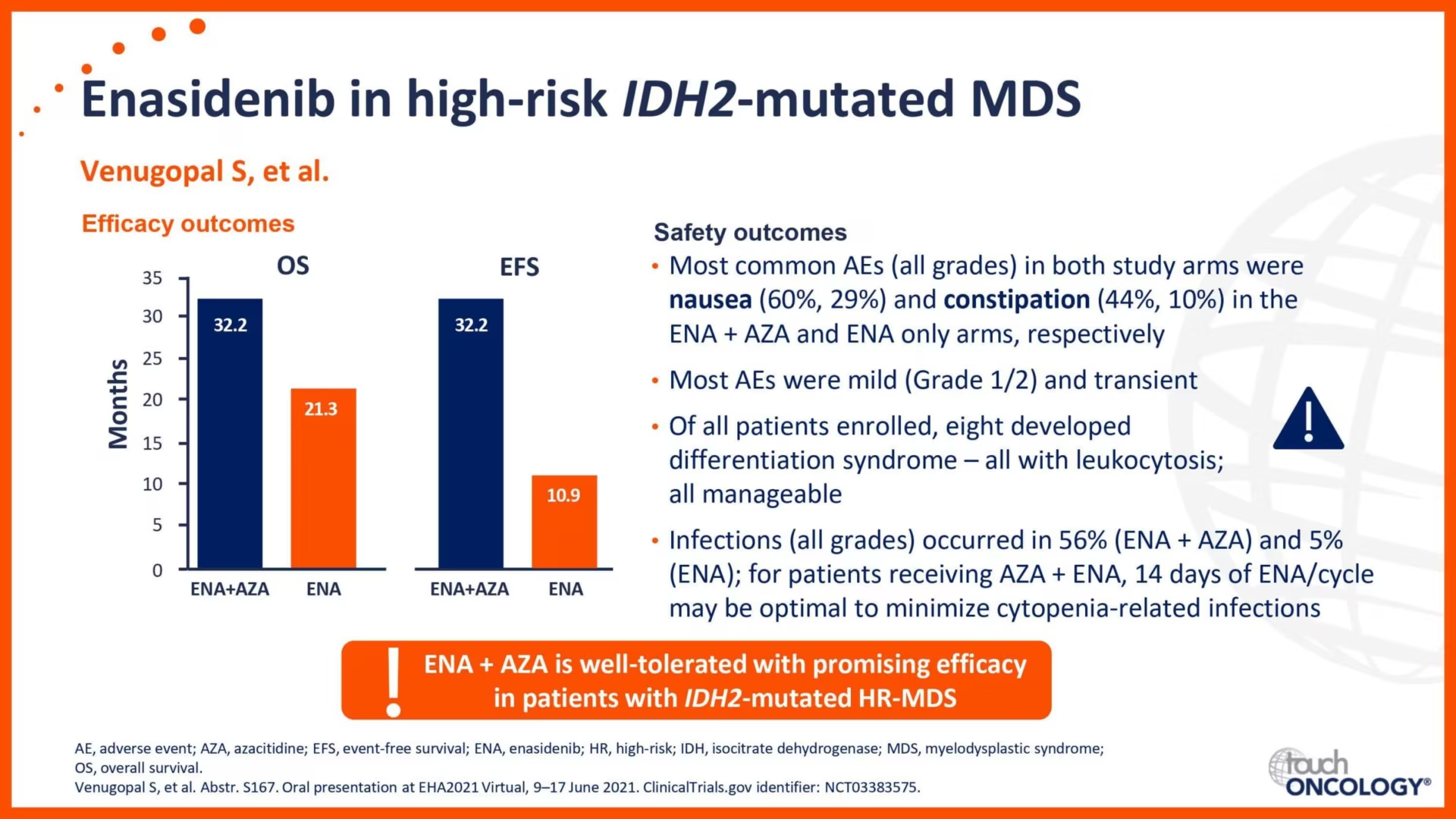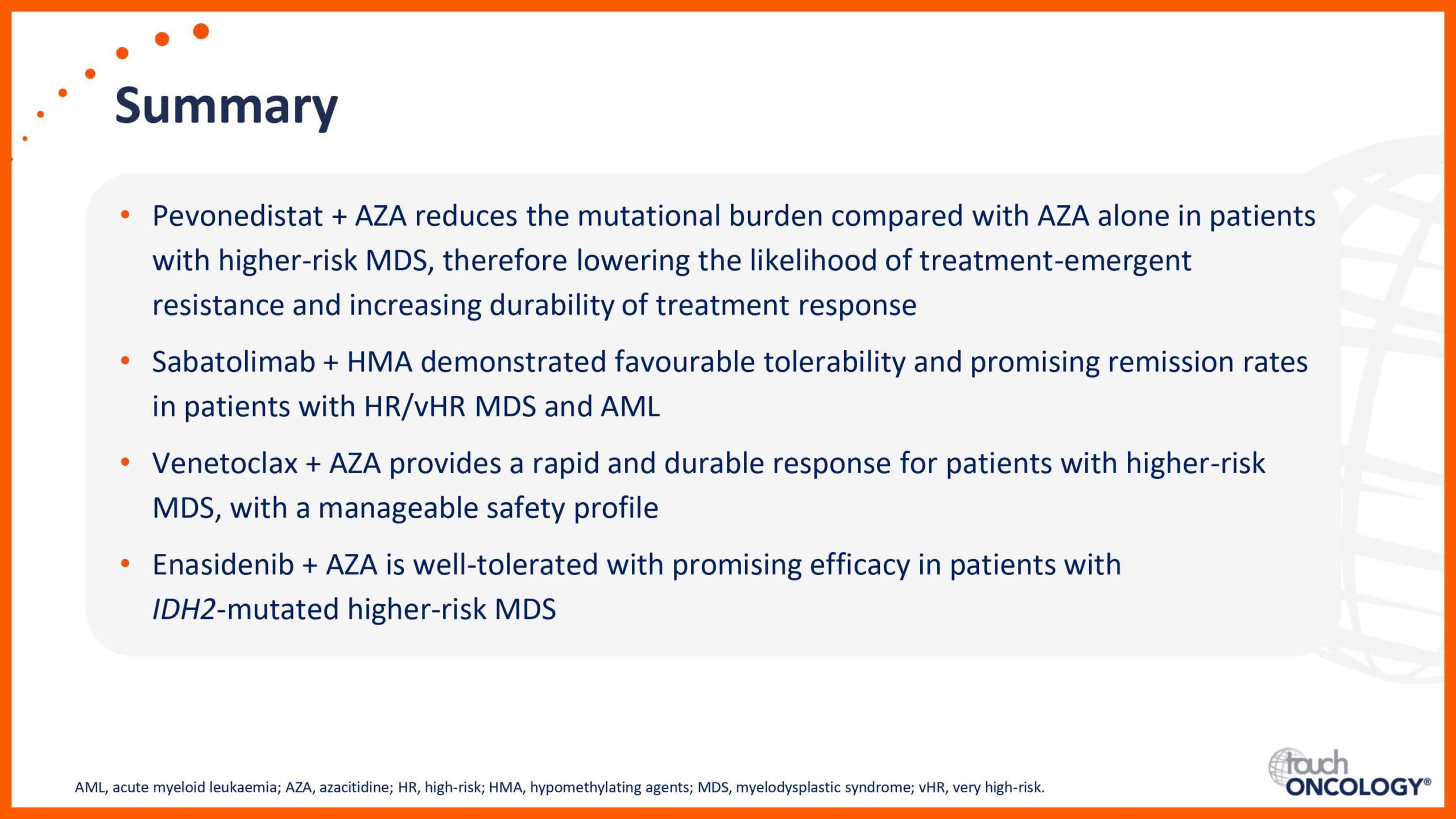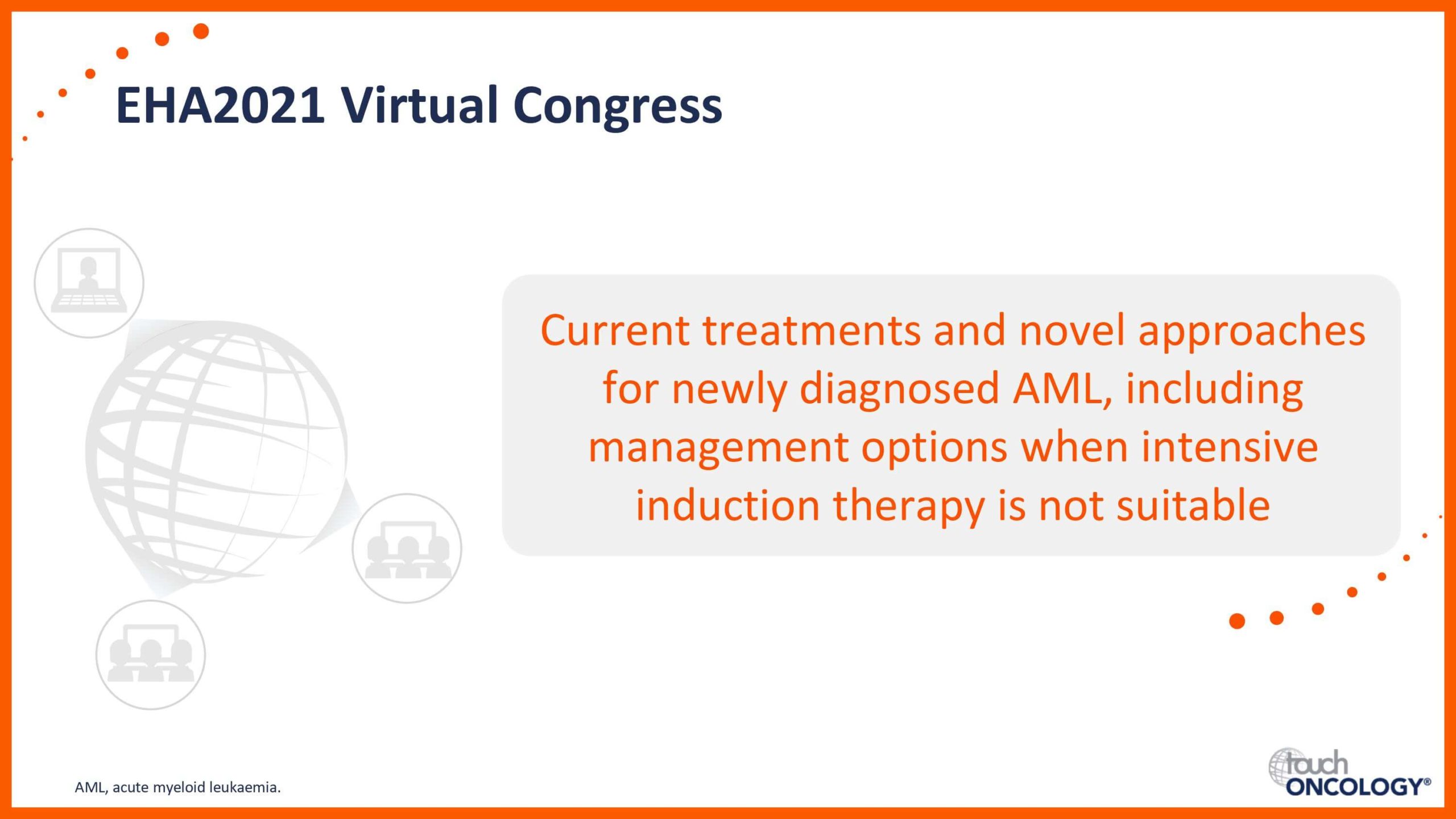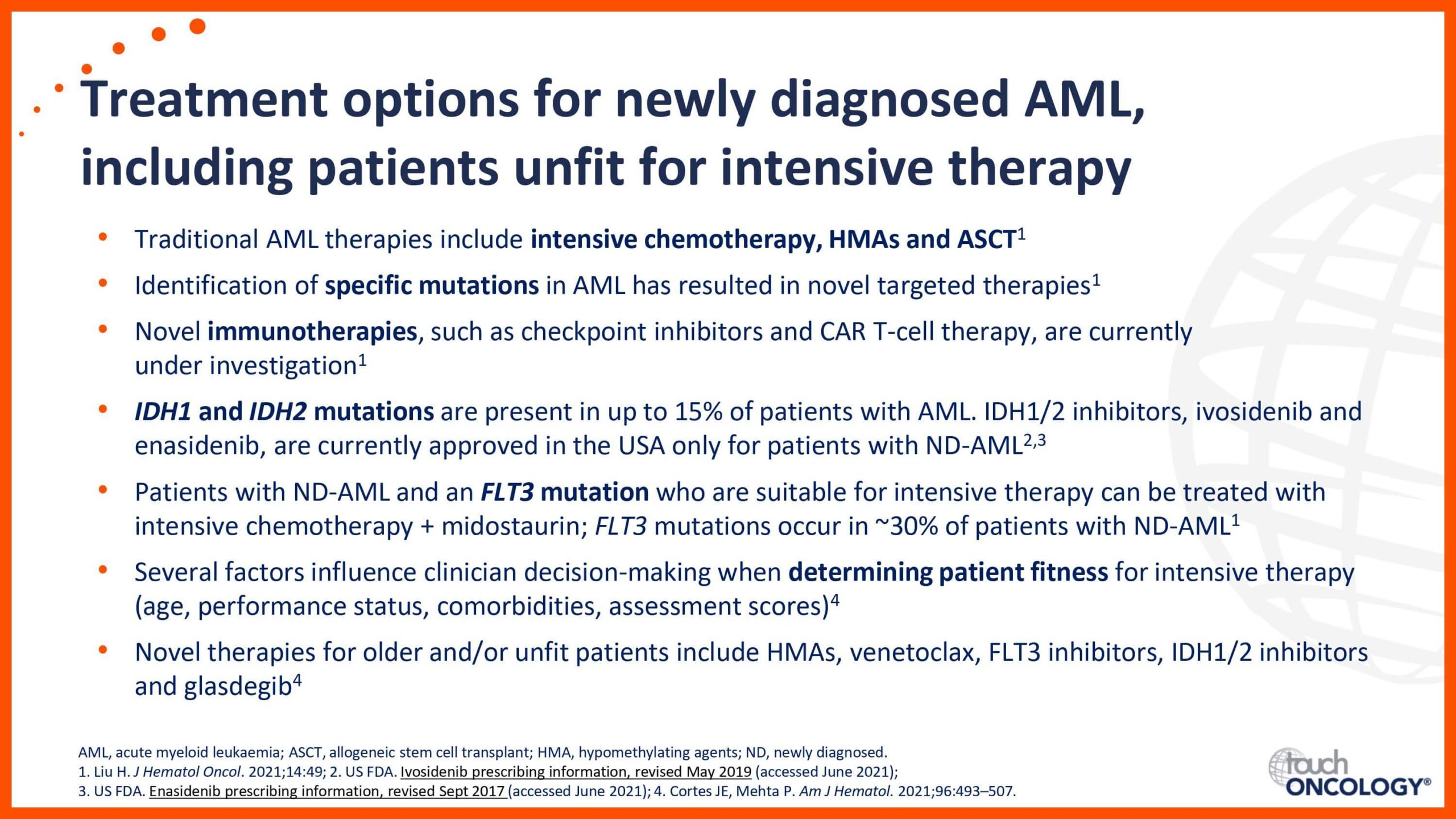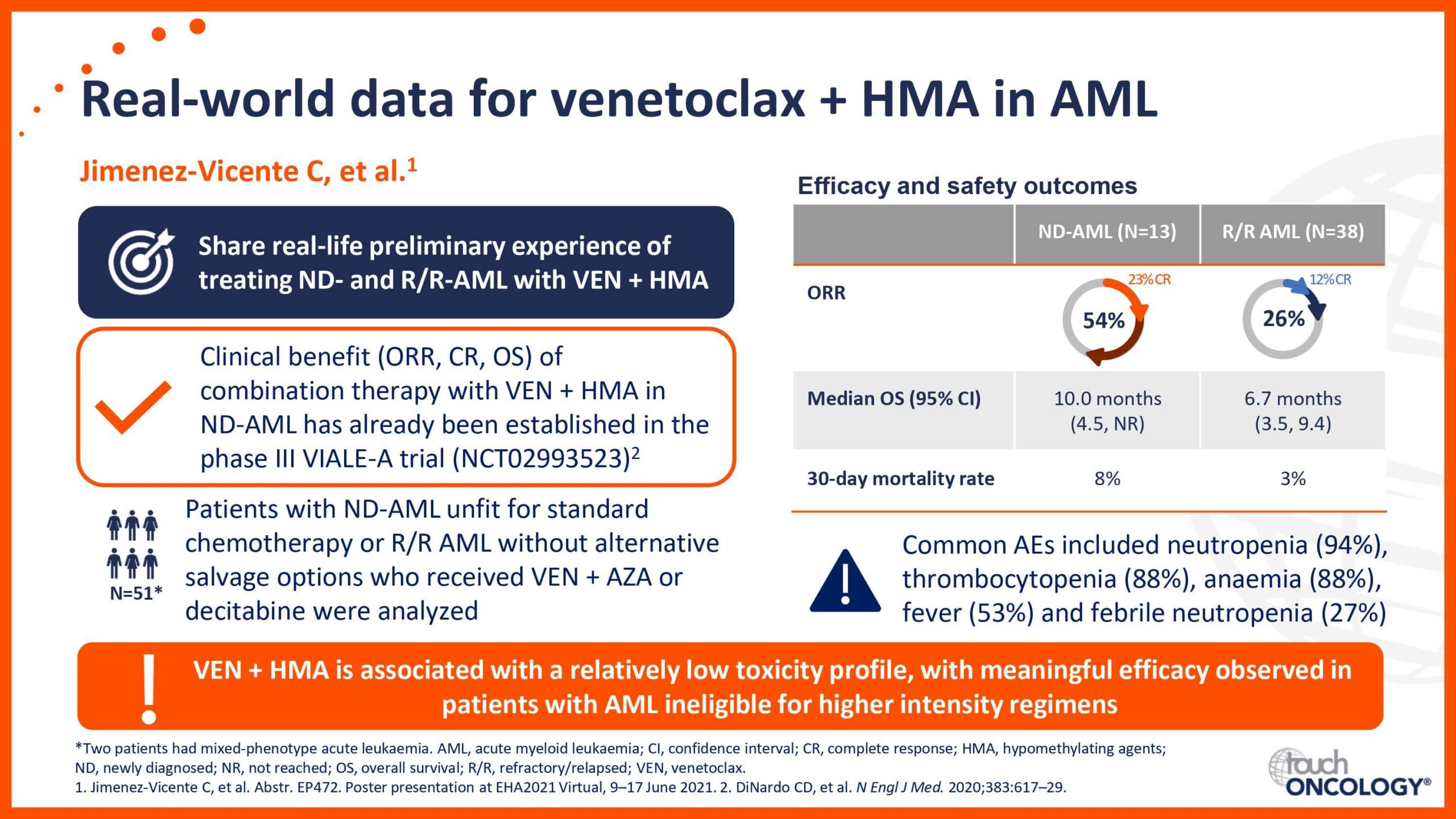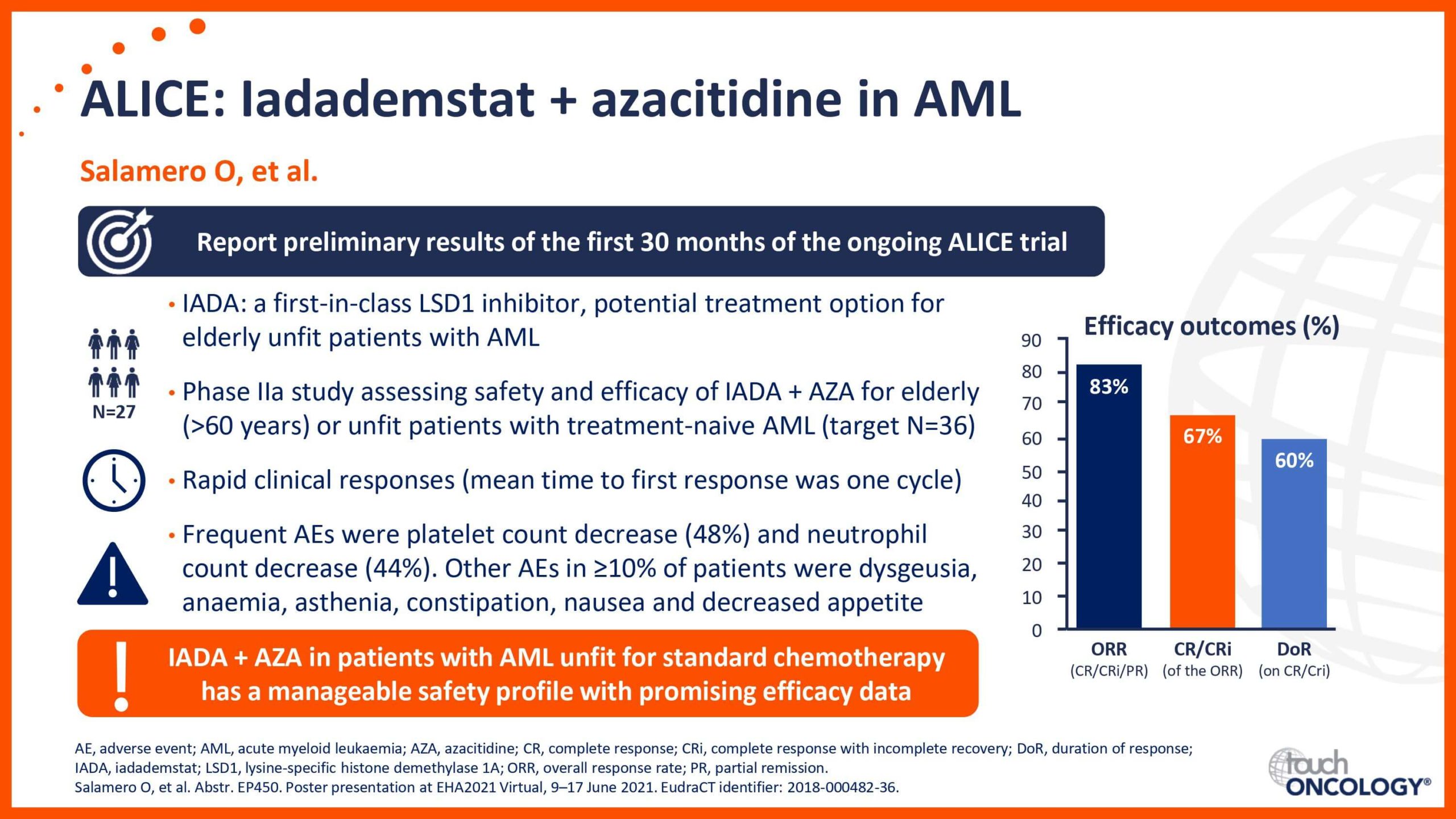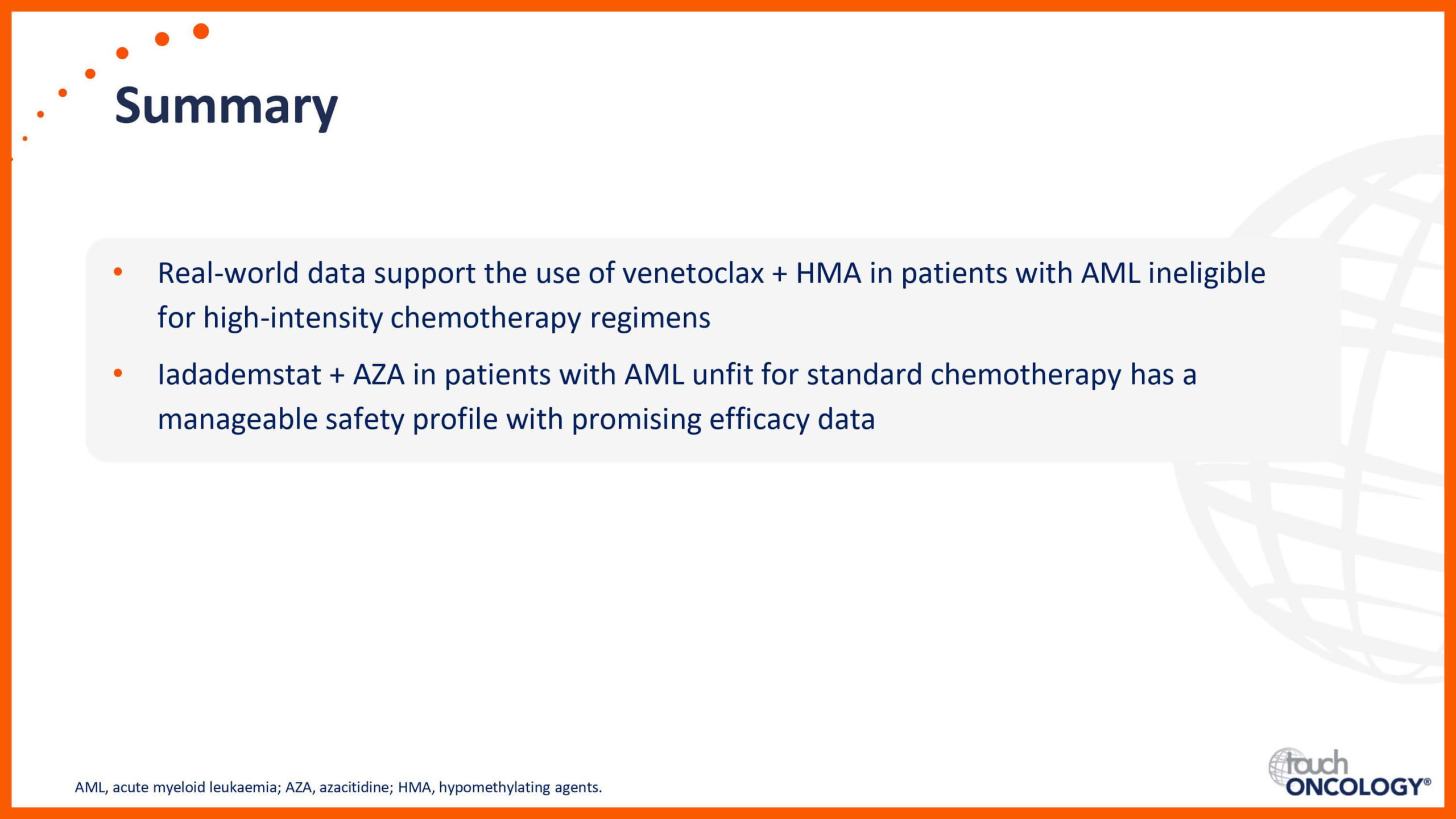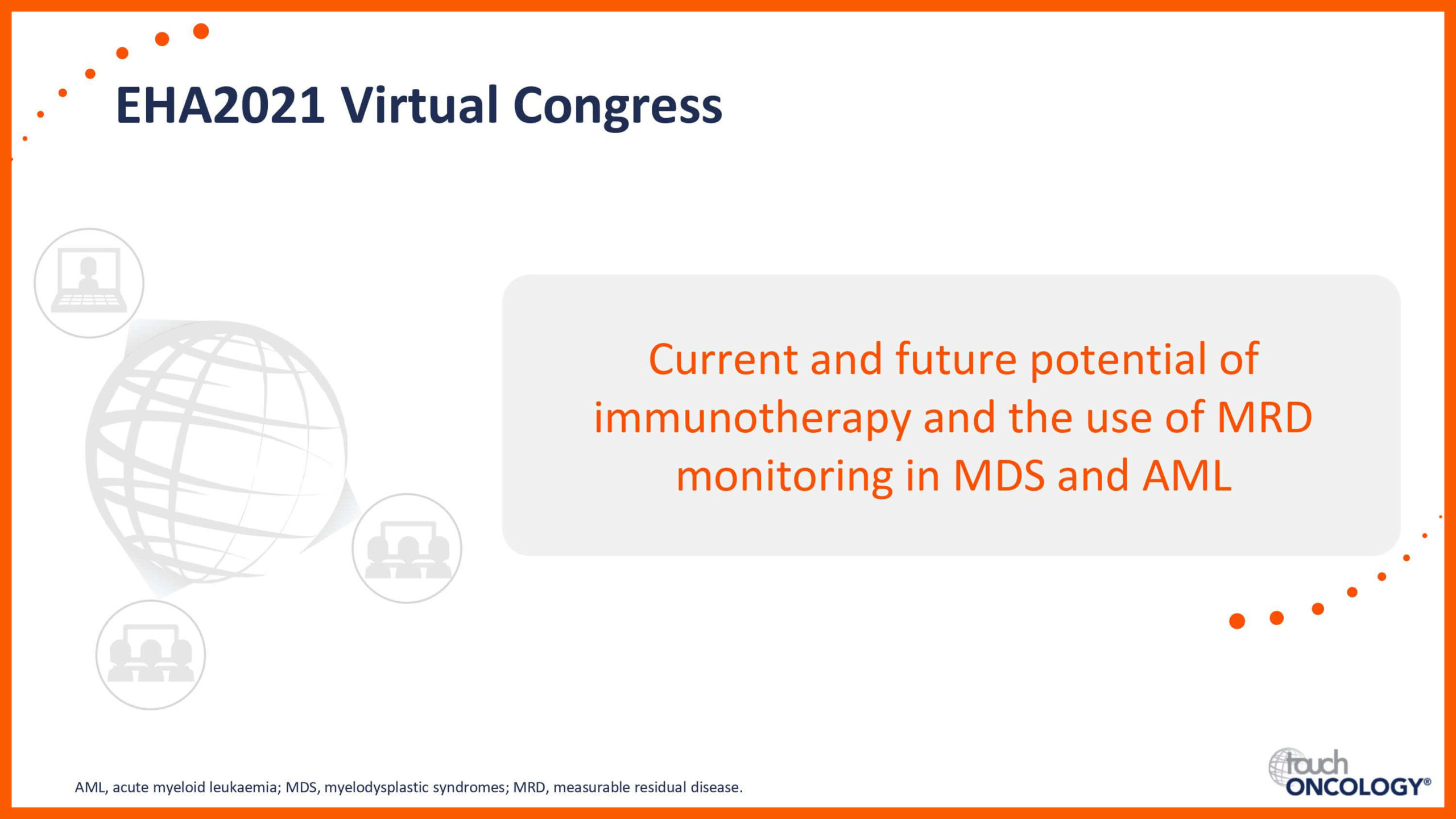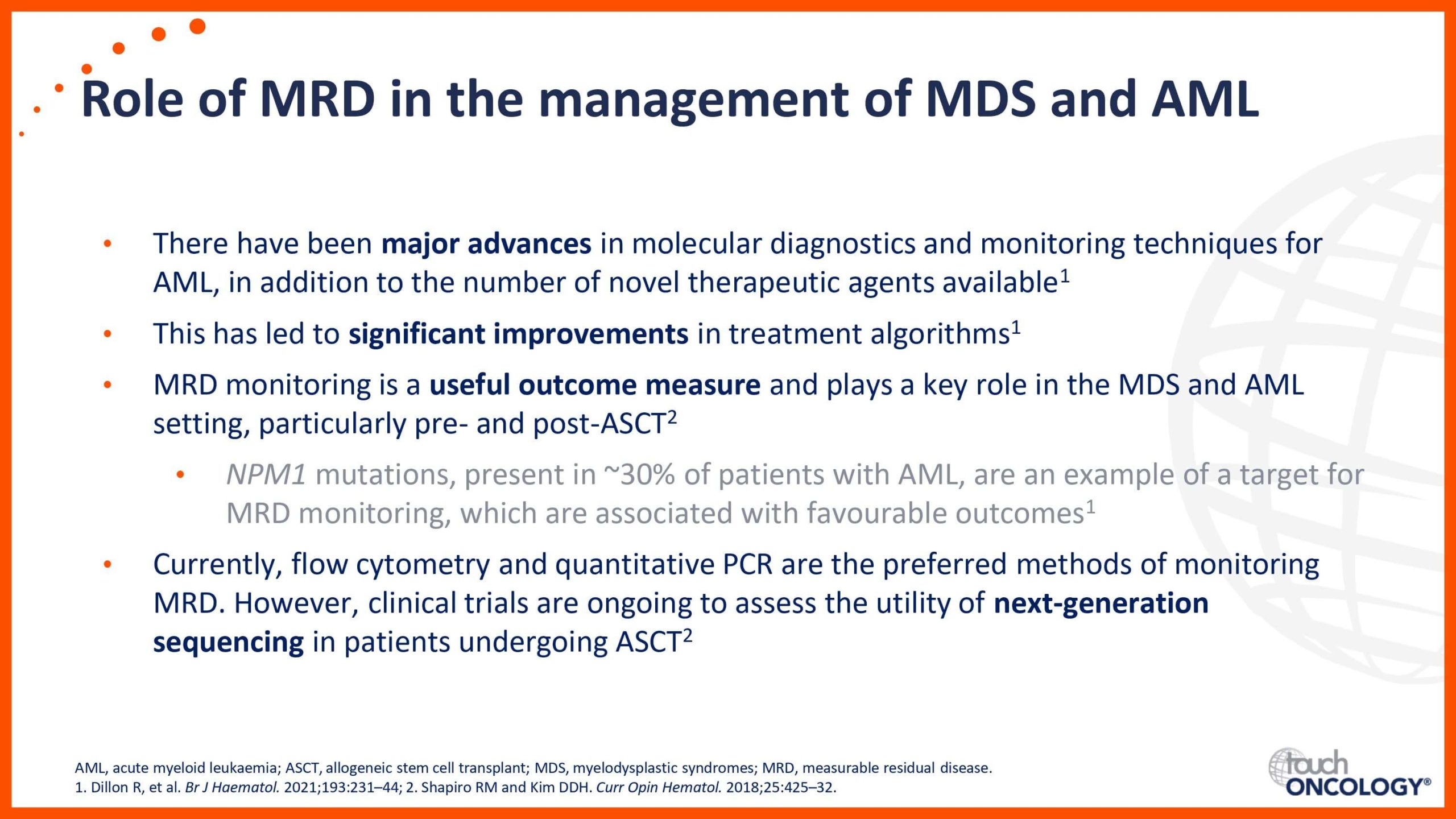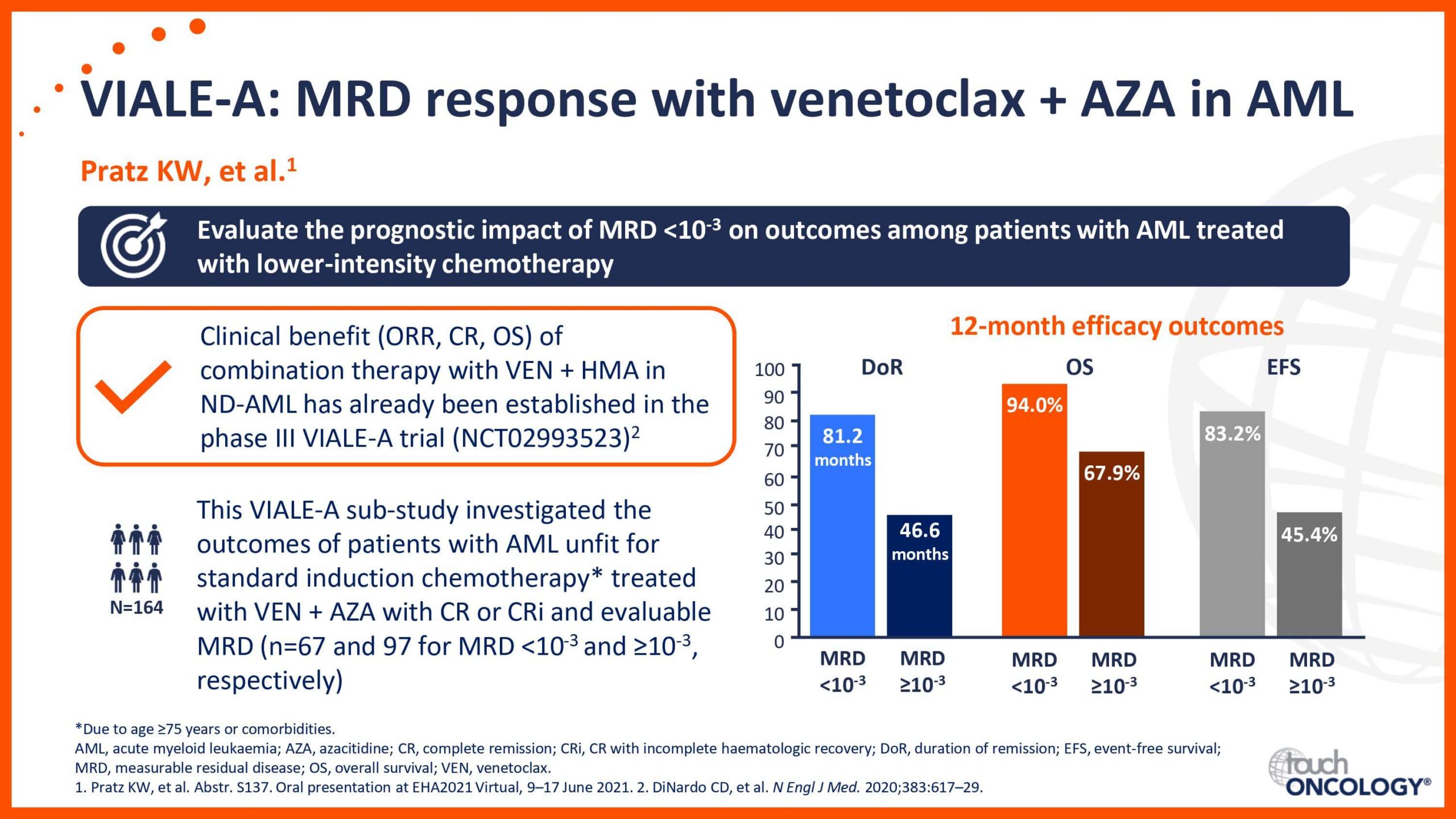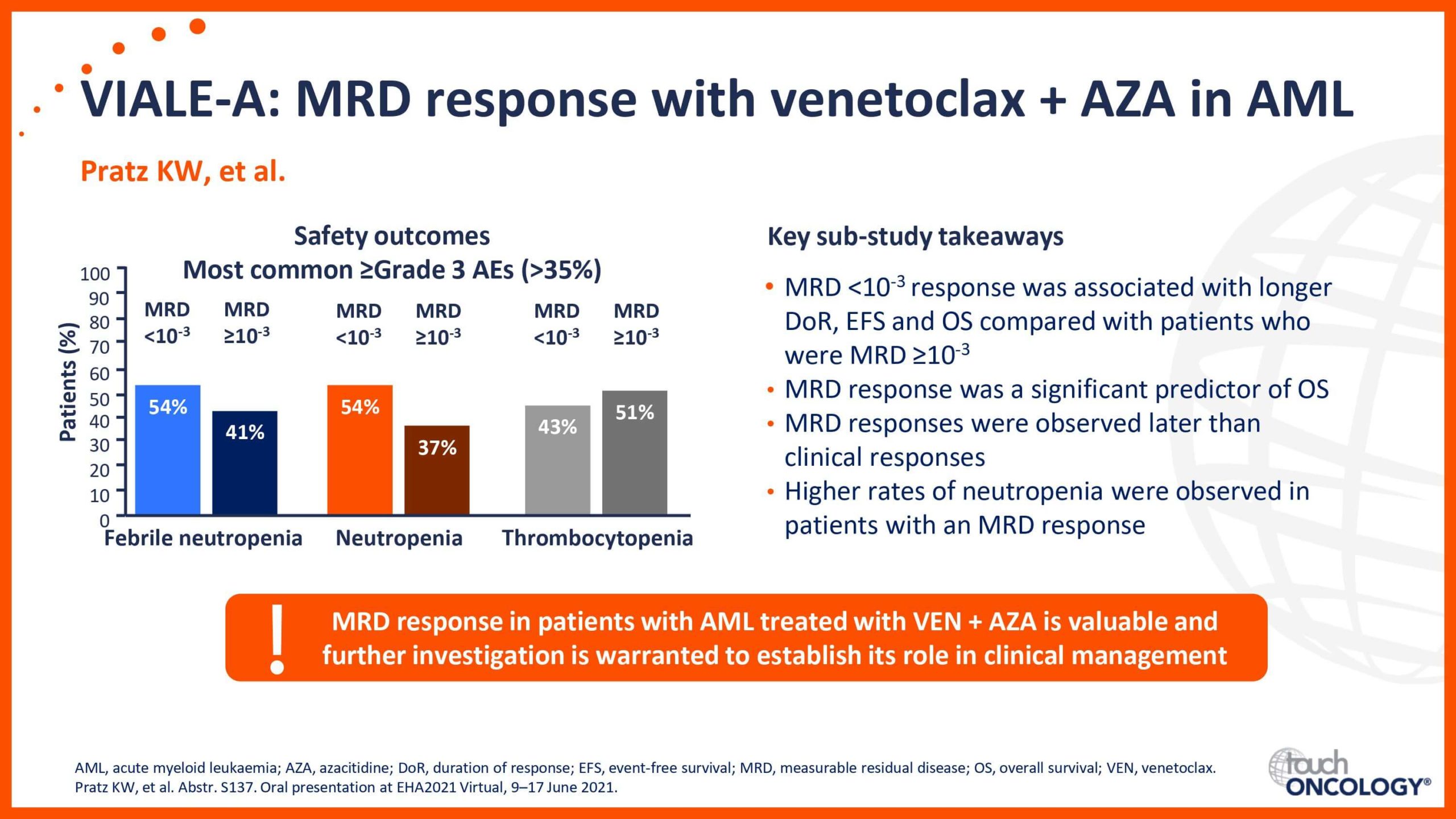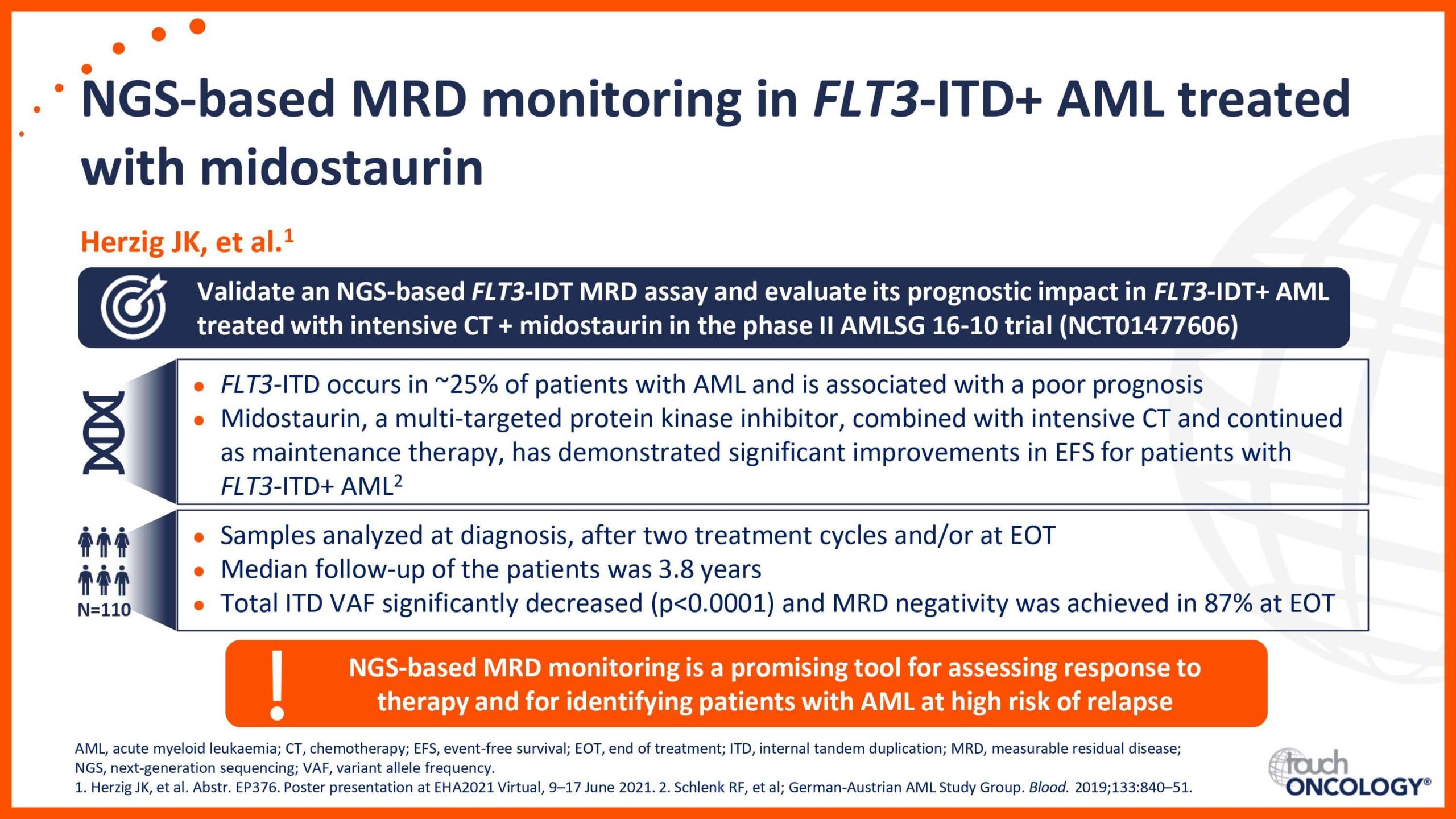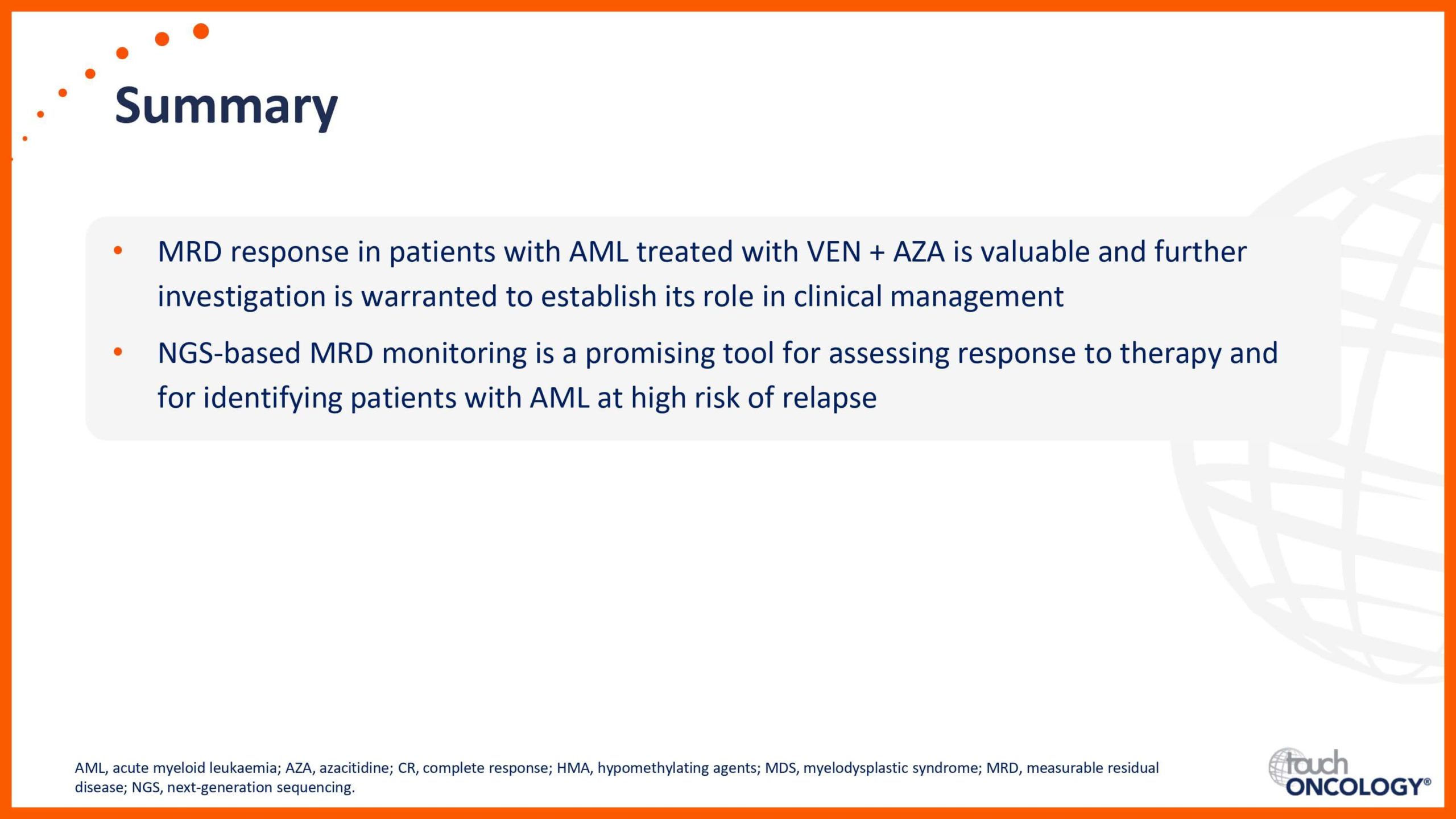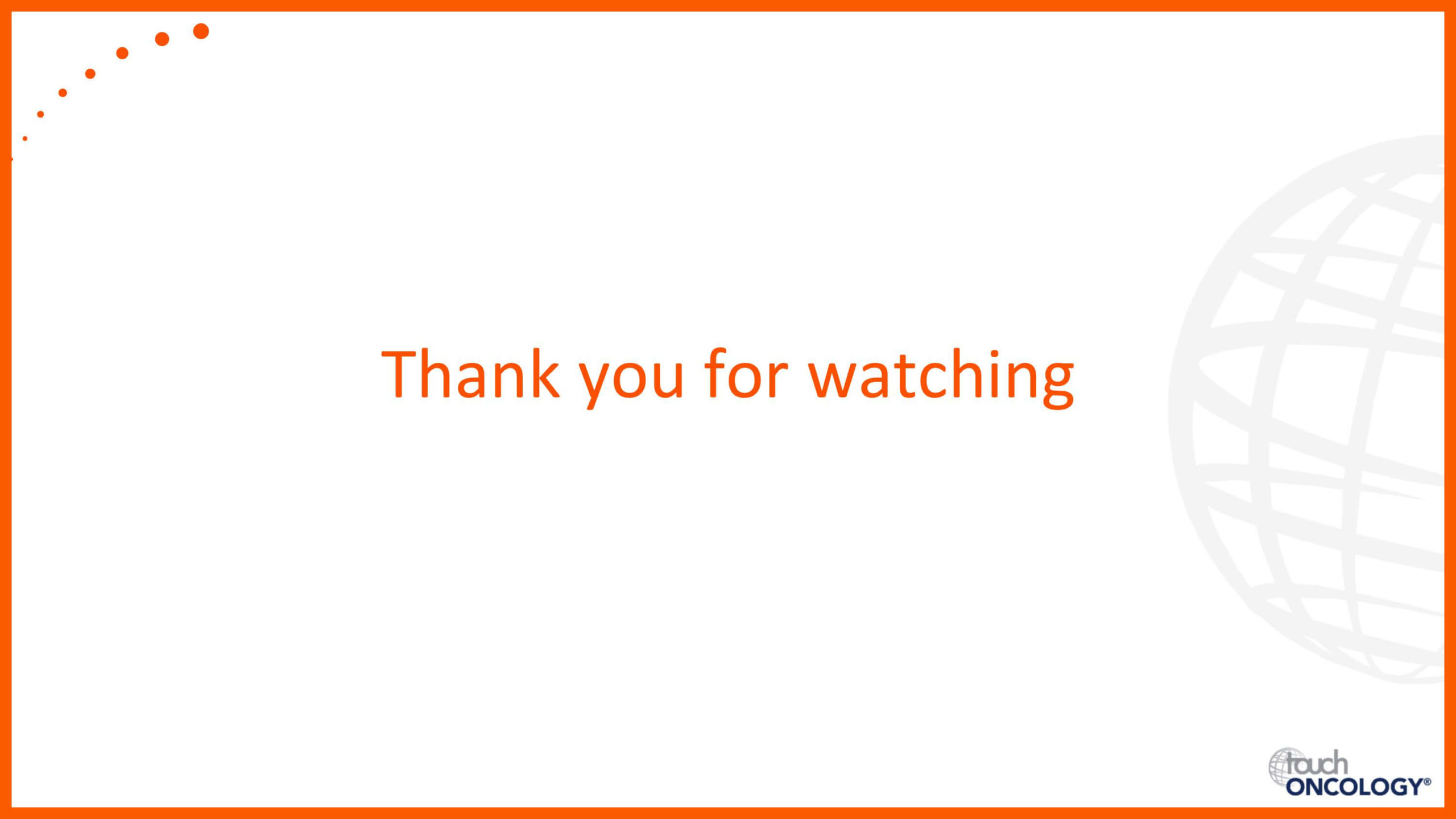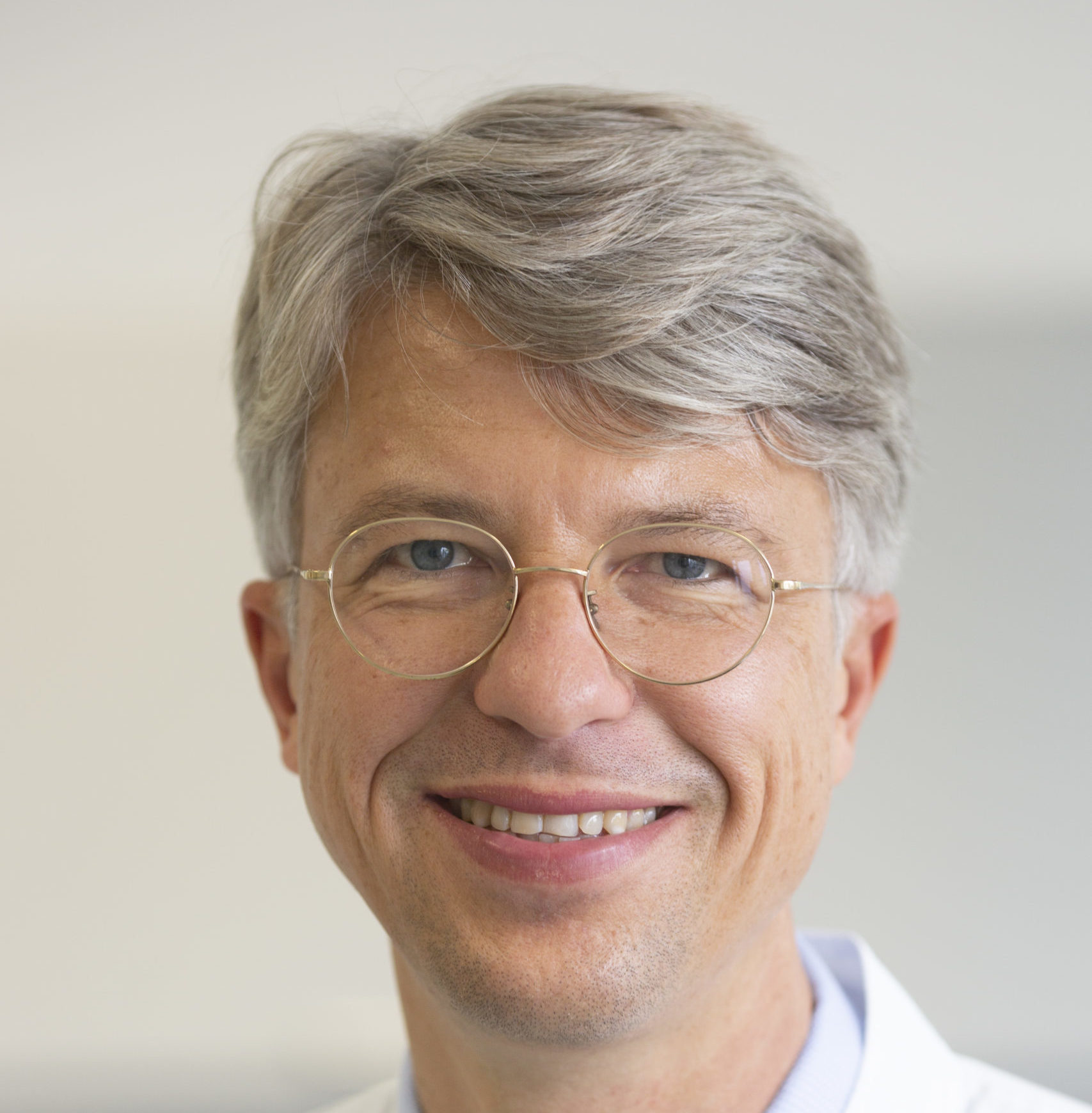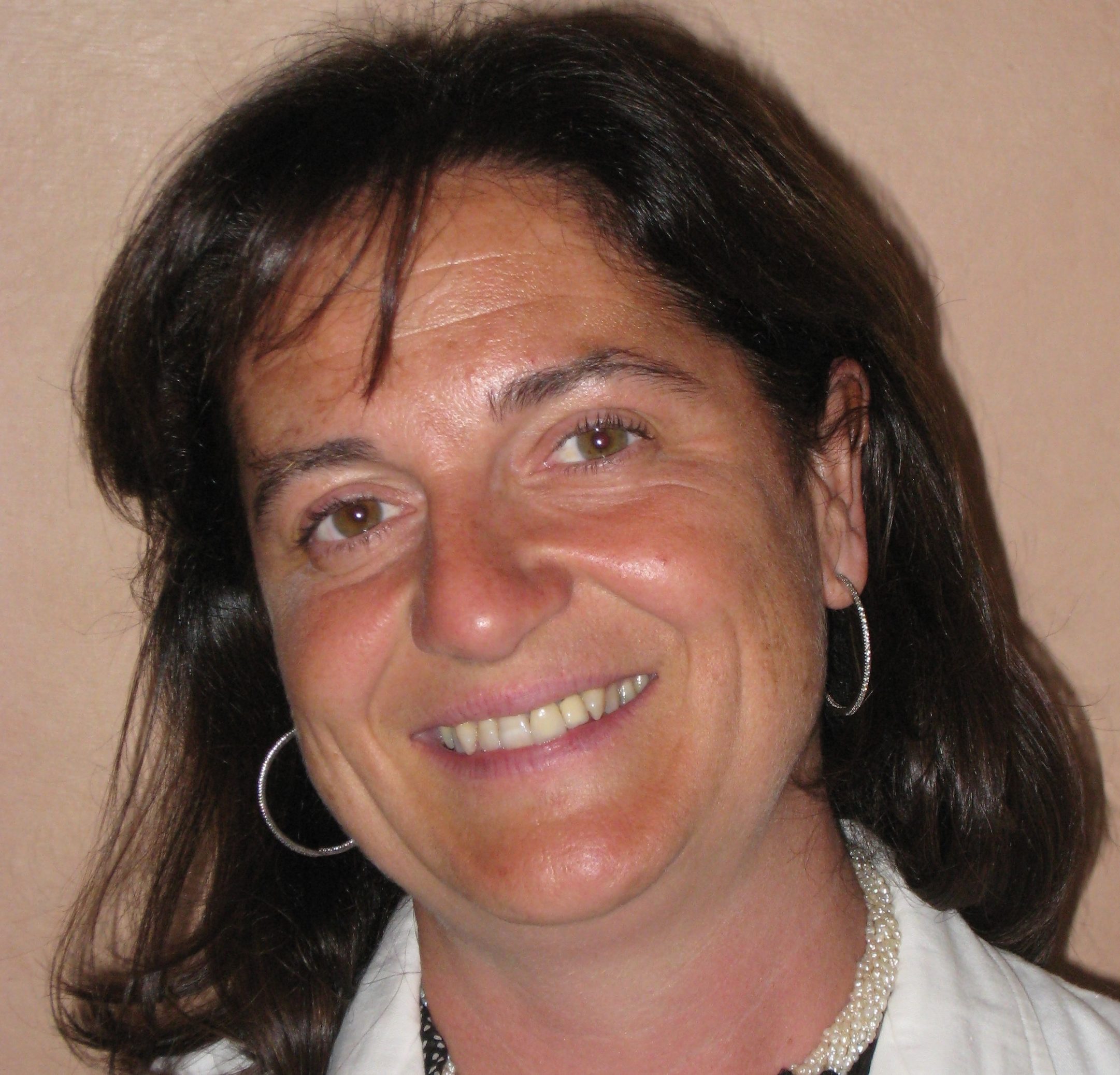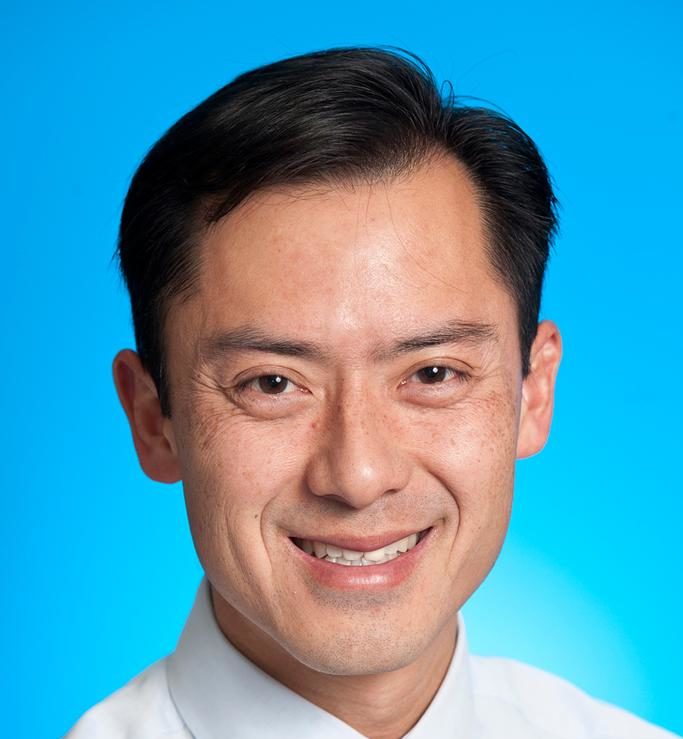touchCONGRESS Exploring the latest data on new and emerging treatments for the improvement of outcomes in higher-risk MDS and newly diagnosed AML
Watch this two-part activity exploring recent developments around the treatment of higher-risk MDS and newly diagnosed AML. Filmed following the EHA2021 Virtual Congress.
Part 1: Watch haematological cancer expert Prof. Uwe Platzbecker review key data from the EHA2021 Virtual Congress Watch Now
Part 2: Choose from leading experts who discuss what these data mean for global and regional practice Select An Interview
Introduction
Mechanism of action and key clinical data for emerging treatments for higher-risk MDS
Current treatments and novel approaches for newly diagnosed AML, including management options when intensive induction therapy is not suitable
Current and future potential of immunotherapy and the use of MRD monitoring in MDS and AML
Uwe Platzbecker considers the latest data on new and emerging treatments for the improvement of outcomes in higher-risk MDS and newly diagnosed AML from the EHA2021 Virtual Congress.
Valeria Santini considers the latest data on new and emerging treatments for the improvement of outcomes in higher-risk MDS and newly diagnosed AML from the EHA2021 Virtual Congress.
Andrew Wei considers the latest data on new and emerging treatments for the improvement of outcomes in higher-risk MDS and newly diagnosed AML from the EHA2021 Virtual Congress.
Please Select A Video:
Overview & Learning Objectives
Overview
Stay up to date with the latest data on new and emerging treatments for the improvement of outcomes in higher-risk myelodysplastic syndromes (MDS) and newly diagnosed acute myeloid leukaemia (AML) in this two-part activity. This activity was filmed following the EHA2021 Virtual Congress.
Learning Objectives
After watching this activity, participants should be better able to:
- Recall the mechanisms of action and key clinical data for emerging treatments for higher-risk MDS
- Evaluate current treatments and novel approaches for newly diagnosed AML, including management options when intensive induction therapy is not suitable
- Discuss the current and future potential of immunotherapy and the use of measurable residual disease (MRD) monitoring in MDS and AML

Register to touchONCOLOGY for FREE
- Peer-reviewed journals and expert opinions
- Interactive CME and e-learning modules
- Video conference highlights

